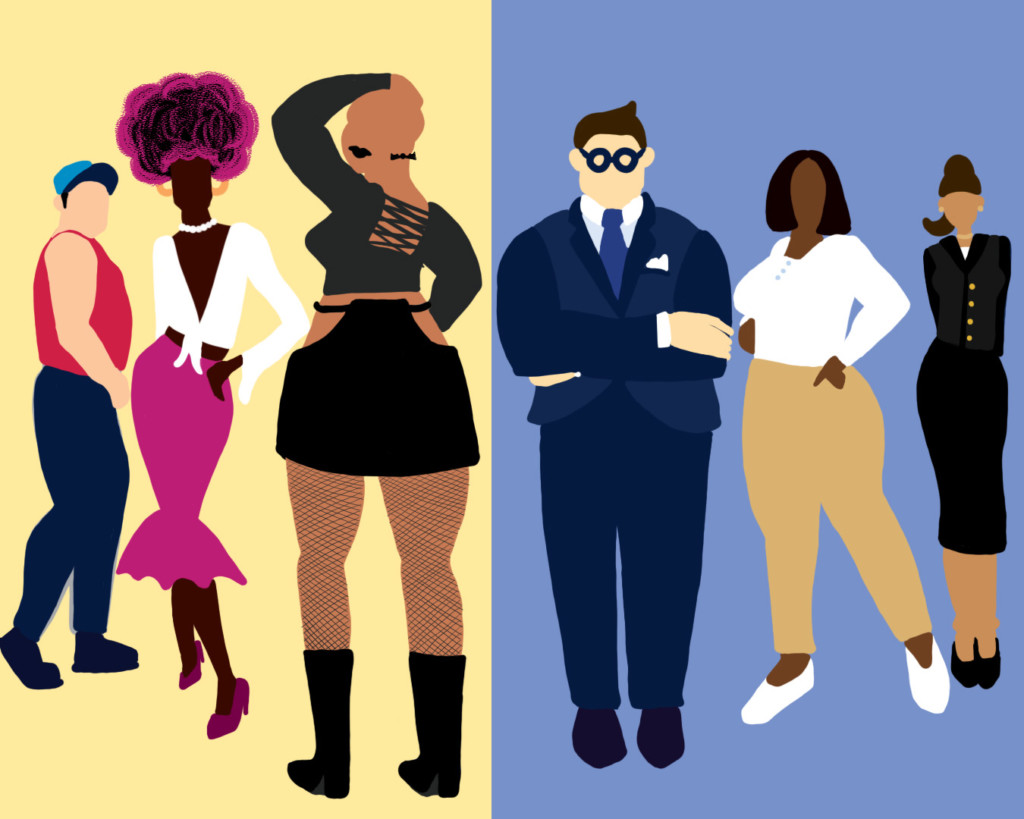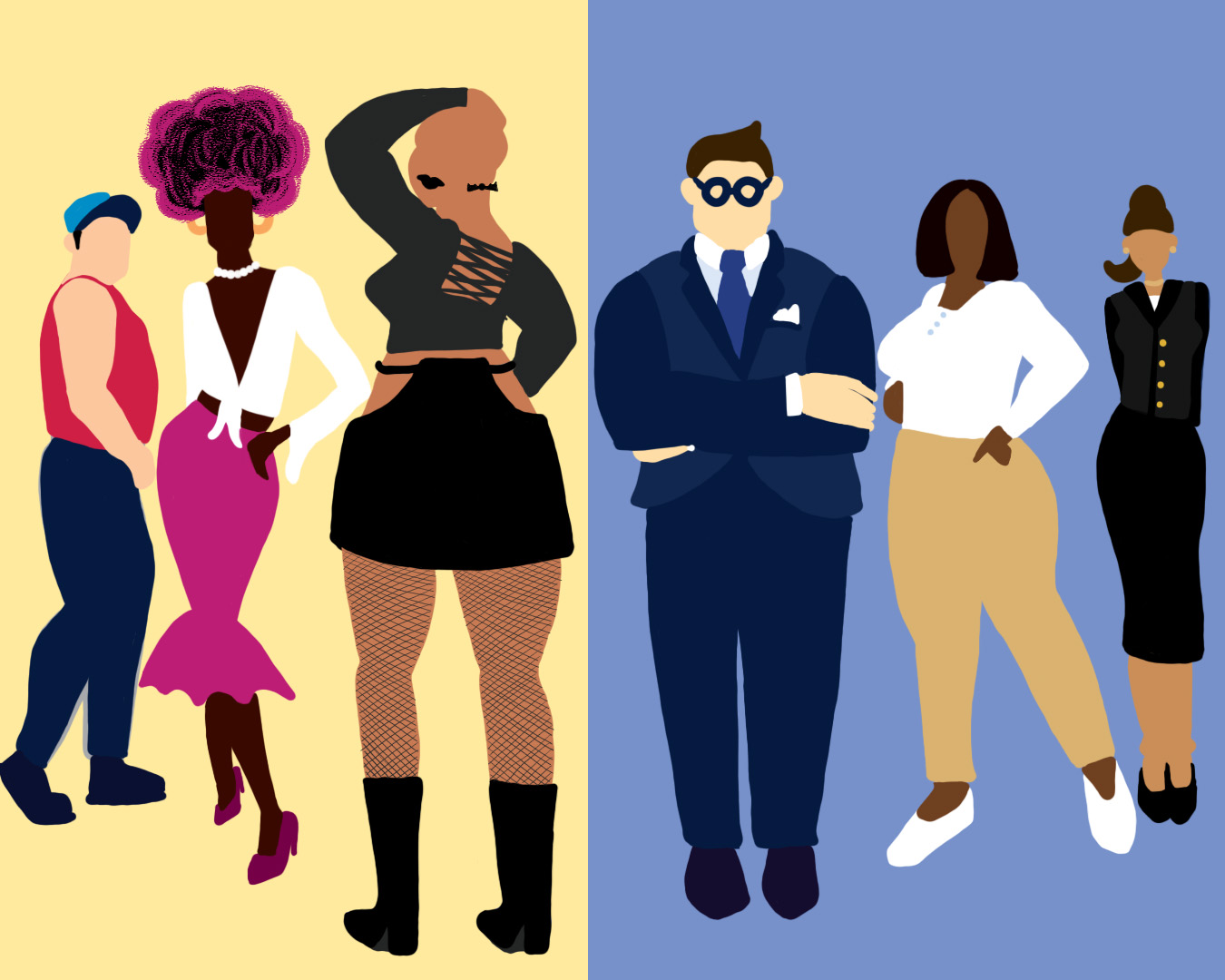Fashion culture has evolved diverse styles throughout the centuries. From the denim suits of the ’70s to athleisure in the 2010s, various apparel have had their turn to become the statement pieces of their era. However, the professional world has yet to catch up — most companies still have dress codes that limit the self-expression of individual employees.
The reason that so many businesses have installed dress codes for their employees is simple: It helps provide a uniform view of the company’s image to their prospective clients. For example, law firms require their employees to dress up in formal suits and ties when meeting with a client to portray a clean and serious image of their firm. Similarly, having nurses all wear scrubs in the hospital streamlines the appearances of healthcare personnel, making it easier to identify who you need.
While I don’t have a problem with the attire for work itself, restricting self-expression makes company life dull and too old-fashioned. The prevailing social perspective holds that self-expression limits the professionalism of an individual — incorrectly equating nonconformity with an unprofessional image. In each dress code, there are some parts of an individual’s appearance that are deemed “inappropriate.”
Let’s look at self-expressive piercing and tattoos. Many companies have deemed nose or lip piercing to be inappropriate for the workplace, afraid that those types of piercings make employees a distraction to clients and a poor representation of the company. Moreover, older generations associate tattoos, especially full sleeves, with gangs. Views like these contribute to a discriminatory view in the workplace.
But time has evolved — and continues to evolve — our standards. Just like everything else, how we dress for work also transformed. From the early 1900s when women wore traditional gowns and men wore full suits to the minimalist blazers and muted colors in the 2000s, work attire has changed with the generations. And as our generation begins to take on the professional world, we will bring to the forefront something that our generation values: self-expression.
All over social media, people showcase their unique talents and views on the Internet. Furthermore, body tattoos and piercings are becoming more and more normalized in our generation. To many Gen-Zers, we have the space, both in real life and on the Internet, to openly express who we are and what we believe in. We do that with the way we dress, the way we interact with others, or the way we carry ourselves in public. Self-expression is how we learn from others —their perspectives, stories, and personalities.
Even so, others argue that uniformity in the workplace reigns, bringing the team together and uniting everyone under the same level of professionalism. But who says that empowering employees with the right to self-expression can’t do the same? With freedom of self-expression in the workplace, employees will be able to get to know each other better while collaborating almost every day, which can go a long way for company productivity and culture, ultimately aiding in recruiting prospective hires. Self-expression is a way to celebrate diversity, whether through unconventional tattoos or green hair.
There are many systems that are stuck in the past (ahem, education) but dress codes in the professional world are not. As the century turned, the business attire changed, and inevitably it will be our turn. We don’t have to get rid of dress codes altogether, obviously, but giving employees the opportunity to show a little bit of themselves through the color of their hair or that lip piercing they have been removing during the workweek can allow them to feel more comfortable in the workplace because they aren’t hiding themselves.
Changes do not come with a snap of a finger, and with stubborn individuals at the top of the food chain in the professional world, we need to inch our way toward our goal. Dress attire might be out of our control today, but molding the dress code day by day shouldn’t be. It’s time that we endorse self-expression not only within our online spheres but in all of the professional world as well. Come on, a doctor with pink hair says nothing less about their abilities than one with brown.



